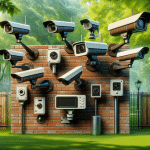Types Of Computer Forensics
What are the different types of computer forensics? Have you heard of such jobs as Computer Forensics Engineer, Computer Forensics Investigator, Forensic Investigation Consultant, Forensic Auditor, Forensic Analyst, Forensic Mechanical Engineer, Security Consultant, Computer Media Specialist, IT Forensics Analyst, Digital Forensics Specialist, etc? These are some of the specific types of computer forensics jobs. Usually, a professional in computer forensics has skills that should be specialized related to data retrieval, security software, analyses and systems integration. Not only that but also a lot of jobs in computer forensics require an advanced degree in “computer science and technology.” Professionals in this field are usually detail-oriented, like to give solutions to problems which are complex, and like to work with numbers as well. The qualities of the professionals in this field are meticulous, hard working and tenacious.
If you might like to get a job related to computer forensics, you have four options to choose from since the types of computer forensic jobs are categorized into four which are related to financial, consulting, law enforcement, and academic.
Financial– This is one of the types of computer forensics jobs where the number of jobs available is increasing. The jobs have roles which are preventive and related to gathering of evidence. Many institutions in the financial sector have considered the response of the law enforcement to be slow. Thus, these institutions hire staff of their own, gather evidence, and furnish the police with the data they have completed so charges can be filed. Such process leads to an increase in prosecutions and criminal charges.
Consulting -This is one of the types of computer forensics jobs where professionals who have worked for at least 10 years often make a switch and become consultants on a full-time basis. Consultants in computer forensics often find opportunities to work for small-scale agencies of government, security firms that are private, accountants and lawyers. A great number of professionals in computer forensics work in consulting firms since in this way they are able focus on their field of expertise because the day-to-day management is delegated to another.
Law Enforcement– Most jobs in computer forensics are concentrated in the law enforcement field. Since the technology’s growing availability has led to crimes being committed with the use of computers, the professionals in computer forensics are able to acquire opportunities of employment either at a crime lab or at a police department. The methods they use for the retrieval of information are considered as important as the data that are retrieved. In these environments, the professionals are expected to be able to follow the procedures that are accepted and be ready to go to court to testify.
Academic– This is one of the types of computer forensics jobs where many professionals who have gained great knowledge through years of experience share what they know through teaching at universities. Such academicians are given the freedom to write books, teach, conduct research or join think tanks of government and other related associations. They usually teach courses in computer forensics which are included in the degree of computer science at the senior level as well as the graduate level.






